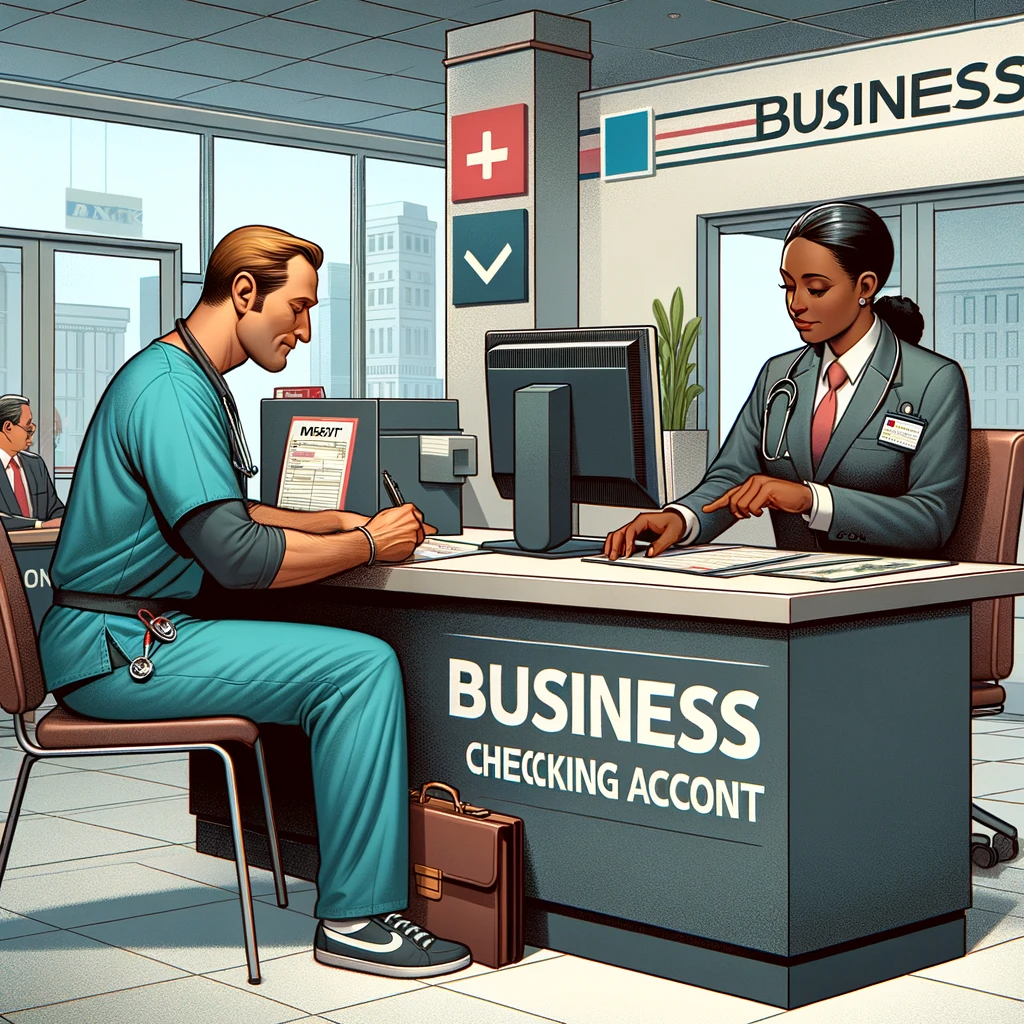Ah, the age-old question of where to stash your hard-earned cash as a 1099 CRNA! It’s a bit like deciding whether to put your favorite snacks in the pantry or the secret drawer — each has its benefits. Let’s break it down.
The Gist of 1099 Income
When you’re rocking the 1099-Independent Contractor status, Uncle Sam considers you self-employed. That means you’re running the show, and how you manage your funds can be as unique as your approach to anesthesia.
Business Checking Account: The Pros
- Organization: It’s like having a dedicated drawer for your socks; everything’s tidy and easy to find. Come tax time, having business expenses and income separate from your personal funds can save you from a headache the size of a post-dural puncture.
- Professionalism: Having a business account could also give you some street cred with financial institutions when you’re trying to get business credit or loans. They like to see that you’re serious about your business — like wearing a stethoscope around your neck even when you’re off duty.
- Protection: Using a business account, especially if you’ve got an LLC or corporation, is like having a bouncer for your assets. It helps keep your personal and business liabilities separate, just in case someone decides to slip on a proverbial banana peel and sue.
But Is It Required?
Now, the IRS doesn’t mandate that your 1099 income goes into a business account. However, they do like to see that you’re not mixing business with pleasure — or in this case, personal expenses. They’re not the fun police, but they sure do like their order.
Words of Wisdom
Ever heard of piercing the corporate veil? It sounds like a horror movie title, but it’s actually the stuff of nightmares for business owners. This legal jargon basically means that if you’re not careful, a court can say, “Hey, your personal assets are fair game for your business debts!”
Keep It Separate, Keep It Safe
The crux of the matter is separation. Keeping your business and personal funds as separate as introverts and karaoke. If a creditor comes knocking and you’ve treated your business bank account like a piggy bank for personal use, or vice-versa, you could be in for a world of hurt.
The ‘Unity of Interest’ Test
Courts have this little test—they look for a “unity of interest” between you and your business. If they can’t tell where you end and your business begins, that’s a red flag. Add a dash of injustice or fraud to the mix, and they’ll rip away that corporate veil. [ 🔗 ]
So, What’s the Bottom Line?
While the IRS won’t knock on your door demanding to see a business account for your 1099 income, having one is a savvy move. Setting up a business checking account is like getting a prenup for your finances. It draws a line in the sand—or in this case, between your assets. It tells the world, “This is my business, and that’s my personal life, and ne’er the twain shall meet.”
It’s Not Just Business, It’s Personal
At the end of the day, a business account isn’t just a business decision—it’s a personal one too. It’s about protecting what you’ve worked for in a way that’s as effective as a well-placed epidural. So, make the smart choice: separate those accounts and sleep a little sounder at night.
And there you have it, the low-down on keeping your 1099 CRNA income safe and sound. Remember, in the world of personal and business finance, it’s not just about making money—it’s about keeping it too.

